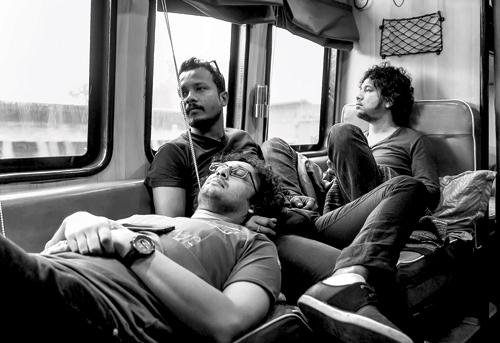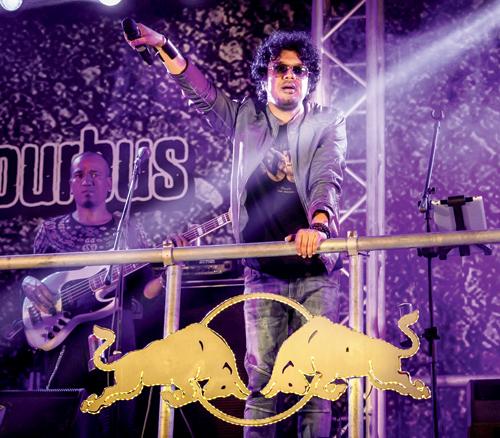For a documentary, musician Papon returns to his roots in the north-east

Papon (extreme right) on his way to Guwahati
ADVERTISEMENT
He’s been so removed from Shillong, which he marks as one of the main stops of his musical journey, that Papon didn’t think a gig at the city’s Polo Parking Lot, which was the venue for NH7 Weekender, would bring in the kind of crowd it did. A crowd of close to 2,000 fans had gathered and were chanting Papon’s name when he got on stage.

Papon (extreme right) on his way to Guwahati
“I did not expect such a turnout when I zeroed in on the venue. It was overwhelming,” he says. The 40-year-old treated fans to some of his oldest and most recent Hindi and Assamese songs from hit albums such as Dinae Dinae, Khumaar, Moh Moh Ke Dhajke, Jhumur, Banao and Jiye Kyun. Playing with Papon was Rudy Wallang, from Meghalaya, one of India’s best guitar players. “He's somebody who I have always looked up to in music.” In short, it was the perfect homecoming.

Papon performs at the Sonaram High School Ground in Guwahati
Angaraag Mahanta, aka Papon, who lives in Mumbai with his wife and two kids, is currently on a journey to revisit his musical roots for the two-part documentary series, Red Bull Tour Bus Hometown Heroes. His passage into the past is via a bus equipped with a lounge, a bedroom and even a technical room.
The concept of Hometown Heroes, first launched in Canada in 2011, takes leading musicians, who have settled in cities other than those of their origin, back to their hometown, to relive their musical journey. In India, Papon, a multi-instrumentalist, composer, producer and singer, will be the first to do this.
While talking to us from his hometown Guwahati, Papon shares his excitement. “Due to work commitments, I don’t get a chance to come here. Interestingly, it was finally work that got me here.”
His first pit stop was Majoli. At around 452 sq km, it is India’s largest river island. The place, apart from its glowing rice fields and water meadows, has a culture of neo-Vaishnavism. “It has 22 ancient satras (Hindu Vaishnavite monasteries and centres for art). And being a neo-Vaishnavite myself, I have a special connect with the place.” Neo-Vaishvaism was a movement that originated in Assam in the late 15th century and aimed at ethnic integration by spreading the message of love.
From Majuli, he went to Shillong, which he considers the mecca of music. “This is where I got influenced by the blues, rock and gospel music.” Over three weeks, he also stopped at the Cho’gath tea garden in Assam, where he would go with his dad, and Guwahati. It’s here, he says, that he was initiated into the world of music by his parents, Archana Mahanta and the late Khagen Mahanta, both well-known folk musicians.
“I trained in folk and traditional music because that was part of my family heritage.” But, he ran away from music to pursue a career in architecture, only to return to it. Delhi, where has also performed as part of the tour, became the place where he’d realise his calling. “In Delhi, you get exposed to different musicians. While I was jamming here and there, I met bands like Indian Ocean which gave me a fresh perspective on music. So, that slowly gave me the confidence and I realised that I was able to bring out emotions in people by singing the way I do.”
The last leg of the trip is still pending. Papon will now visit the Kumaon hills before he returns to Mumbai, and the trip did bring back many memories, and some sadness.
“A lot of people from my circle and neighbourhood have moved out. Those places don’t have the same vibrancy anymore.”
 Subscribe today by clicking the link and stay updated with the latest news!" Click here!
Subscribe today by clicking the link and stay updated with the latest news!" Click here!







